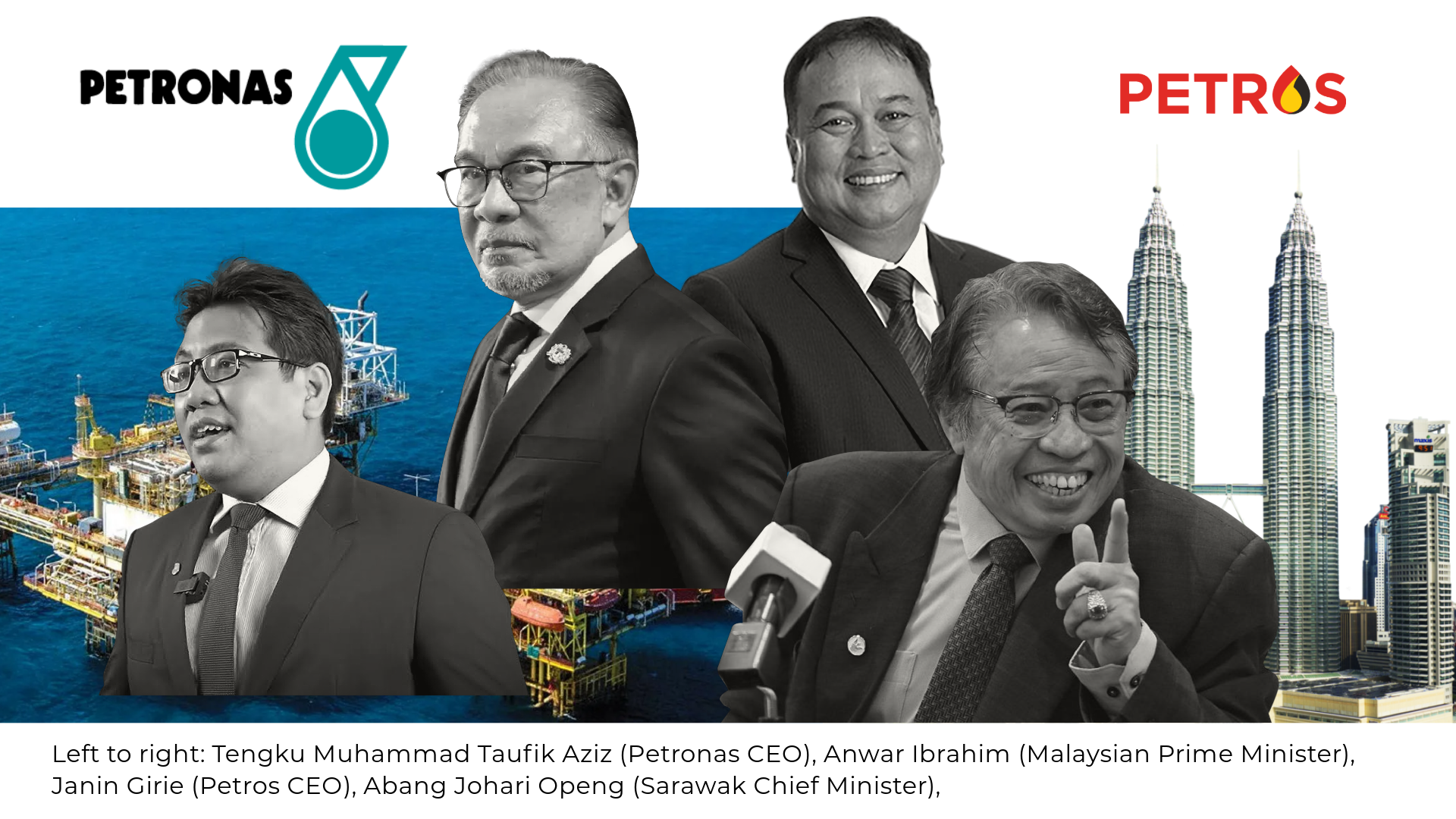Investing in Vietnam — Asia’s Bright Spot
Vietnam’s economy has been one of resilience and steady growth and this success was based on strong fundamentals and policies developed over the past three decades.
As Sarawak seeks greater control over its resources, the outcome could reshape the energy landscape of Malaysia and the wider region
By :The Bizruption Team Mar 10,2025 5-7 minutes
“If he calls, I will come.” Those were the words of Sarawak Premier Abang Johari Openg when quizzed by the media on a possible meeting with Prime Minister Anwar Ibrahim about the scope of cooperation between Petroliam Nasional Bhd (Petronas) and Petroleum Sarawak Bhd (Petros).
Despite both sides declaring their readiness to work together to solve the ongoing rift, the affair has been drawn out and exposed cracks in ties between Kuching and Putrajaya. Perhaps it is telling, then, that Abang Johari said ‘if’ and not ‘when’.
Malaysia has one of the most extensive natural gas pipeline networks in Asia
This is yet another problem of Malaysian politics’ own making which could have transnational consequences for energy diversification, economic stability, as well as consumer and investor confidence.
Business Environment and Regional Economic Stability
For those not in the know, a quick recap. Malaysia is one of the leading oil and gas producers in Southeast Asia and a key player in the global energy market, according to the U.S. Energy Information Administration. Moreover, in 2023, there were 19 new discoveries which could add over a billion barrels of oil equivalent, according to Petronas.
It is worth noting that in the context of the current Petronas-Petros tiff, 16 of these discoveries are located in Sarawak. The remaining three are in neighbouring Sabah, and none in the Peninsular.
Furthermore, Malaysia has one of the most extensive natural gas pipeline networks in Asia, transporting processed natural gas to the power sector and to non-power end-use sectors and exporting natural gas to Singapore.

Malaysia also exported 1.3 million barrels a day (b/d) of petroleum products in 2023, a 7% increase from the previous year, with the Asia Pacific accounting for 79% of these.
Simply put, if the uncertainty prolongs, there are likely to be inefficiencies in distribution and management that impact price stability. The key here is to ensure that the roles of Petronas and Petros are clearly delineated to avoid supply disruptions that will hurt consumers and businesses alike.
Regulatory instability and the risk of disrupted energy supply could also hinder Malaysia’s ability to attract domestic and international investors, who may be wary of committing to long-term energy projects the longer this prolongs.
That would put the brakes on Malaysia’s impressive post-pandemic economic performance, with waning consumer, investor and international confidence likely to also be exacerbated by geopolitical uncertainty and the global energy diversification agenda.
Ripple Effects
At the heart of Sarawak’s case is the objective of securing gas aggregator rights, meaning it would control LNG export allocations. Petronas' diminished role here would cut into its profits—which CreditSights projects could be as much as 11%.
With Petronas being a major contributor to the nation’s coffers, a new dynamic in the national energy sector has far-reaching consequences.
While Petronas’ existing commitments to international customers are not in jeopardy, there is no indication of future sale agreements or contract renewals upon expiry.
The uncertainty isn’t just with regard to future contracts, either, as the possibility that Sarawak may seek additional rights could compel other states to at the very least ask for a bigger share of profits. That will change capital expenditures and national contributions, potentially deterring investors. 
Political Wrestling Poses Regional Risks
At the heart of the dispute is the question of political control over Malaysia’s energy resources. The decentralisation of control could lead to fragmentation within Malaysia’s energy sector, complicating national-level energy policy and regulatory frameworks.
This could result in a fragmented and inefficient energy system lacking coordination. For the Asia-Pacific region, this could create uncertainties about Malaysia’s role as a stable energy exporter and partner in regional energy agreements.
This could fuel regional tensions and prompt other countries in the region to reconsider their own energy governance structures. What could then happen is an insularity that complicates efforts to establish a unified regional energy market.
For Purtrajaya, then, it is walking the tightrope of states’ rights and national unity, which will be a litmus test of their governance.
It, however, also presents an opportunity for the current administration to make good on its commitments to drive Malaysia into the future sustainably.
Having long delayed shedding its dependence on fossil fuels, the changing role of Petronas could just be the perfect opportunity for Putrajaya to drive energy diversification with gusto.
Make no mistake, this is a once-in-a-lifetime chance that could define Anwar’s tenure in Perdana Putra; whether he and his unity government has the political will and nous to do that remains to be seen.
Vietnam’s economy has been one of resilience and steady growth and this success was based on strong fundamentals and policies developed over the past three decades.
Cybersecurity should be centre stage for all companies but too often strategies and urgent implementations forget the basics – that people still represent the greatest risk.
Public pressure is mounting on the beleaguered airline industry to open international borders for travel as usual in the face of constantly changing restrictions and vaccine uptake.
The path to success can be varied – but as everyone knows, we learn more from our mistakes than the easy wins.
Leave a Reply Cancel reply